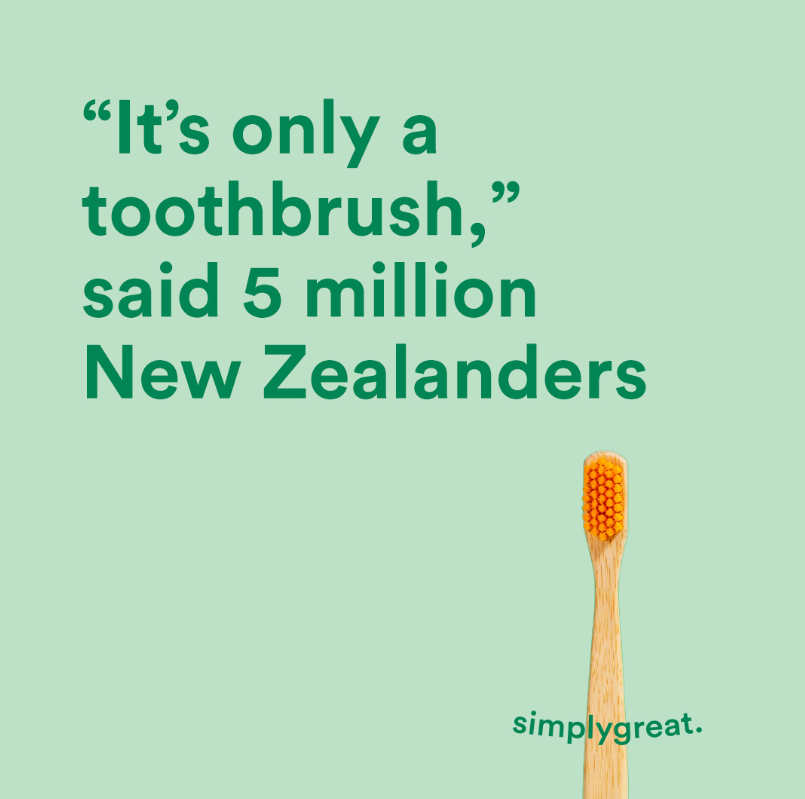Values that drive us
-
Your old toothbrush may seem like a small contribution to our landfills but the environmental cost of scrubbing our pearly whites adds up.
We believe you should be able to take the best care of your teeth, without adding to the current environmental crisis. This is why we have developed a range of premium quality and sustainable products that you can be proud to use.
-

-
Do the math with us:
One toothbrush = 15g
Four toothbrushes a year per person = 60g
Four toothbrushes X population of NZ (4.794M)
= 287,640kg of plastic added to our landfills.




